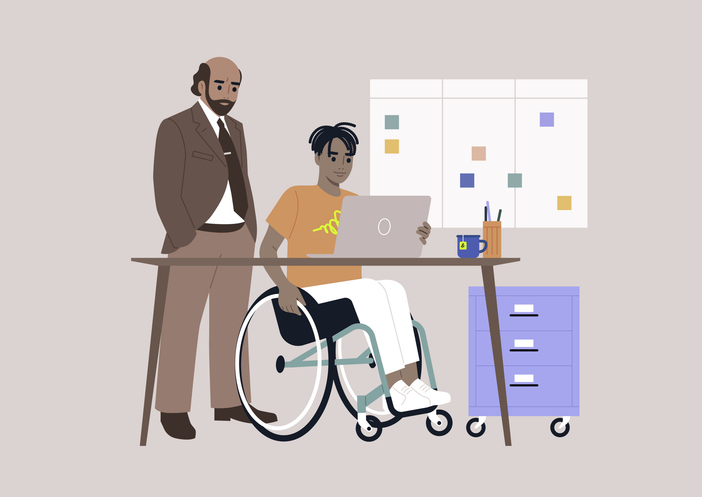The “Interactive Process” for disability accommodations in California is a critical component of the state’s employment law, designed to ensure that employees with disabilities are provided with reasonable accommodations to enable them to perform their job duties.
The process is collaborative and requires active participation from both the employer and the employee. Here, Aryeh Leichter, a Los Angeles disability discrimination attorney at the Leichter Law Firm, APC, provides an overview of the interactive process.

Initiation of the Interactive Process
The interactive process typically begins when an employee requests an accommodation due to a disability or when the employer becomes aware of the need, for example, through a doctor’s note.
Once the employer knows the need for accommodation, they are legally obligated to engage in the interactive process, even if the employee does not formally request it.
Assessment of the Employee’s Needs
The employer should seek to understand the nature of the employee’s disability and its limitations on their ability to perform essential job functions. This might involve reviewing medical documentation or discussing the employee’s specific needs.
The employee’s medical information should be kept confidential, and only those involved in the accommodation process should have access to this information.
Identifying Potential Accommodations
The employer and employee should dialogue to explore possible accommodations. The goal is to find a reasonable accommodation that allows the employee to perform the essential functions of their job without causing undue hardship to the employer.
Accommodations might include modifying work schedules and job duties, providing assistive devices, or altering the work environment. The specific accommodation will depend on the employee’s needs and the nature of the job.
Evaluation of Accommodations
The employer must evaluate whether the proposed accommodations are reasonable and feasible. Factors considered include the cost of the accommodation, the size and resources of the business, and the impact on operations.
If an accommodation would cause significant difficulty or expense relative to the employer’s size, the employer may argue that the accommodation poses an undue hardship. However, the employer must be able to demonstrate this burden clearly.
Implementation of the Accommodation
Once an agreement is reached, the employer must implement the agreed-upon accommodation promptly. The accommodation should effectively allow the employee to perform their job duties.
After the accommodation is in place, the employer should monitor its effectiveness and make adjustments as necessary. The interactive process is ongoing, and additional accommodations may be needed.
The employer must document all interactive process steps, including communications with the employee, medical information received, accommodations considered, and the reasons for any decisions made.
Legal Obligations and Compliance
The employer and employee must participate in the interactive process in good faith. An employer who fails to engage in this process or dismisses it without reasonable cause may be found in violation of California’s Fair Employment and Housing Act (FEHA).
If an employer fails to engage in the interactive process or provide reasonable accommodations, they may face legal action, including discrimination lawsuits, fines, and penalties.
Contact Our Disability Discrimination Attorney in Los Angeles
Contact Aryeh Leichter, the Leichter Law Firm, APC founder, and disability discrimination attorney in Los Angeles County, today to discuss the legal remedies that may be available for your unique workplace circumstances, starting with a free consultation by calling (818)-915-6624 or contacting the firm online.









